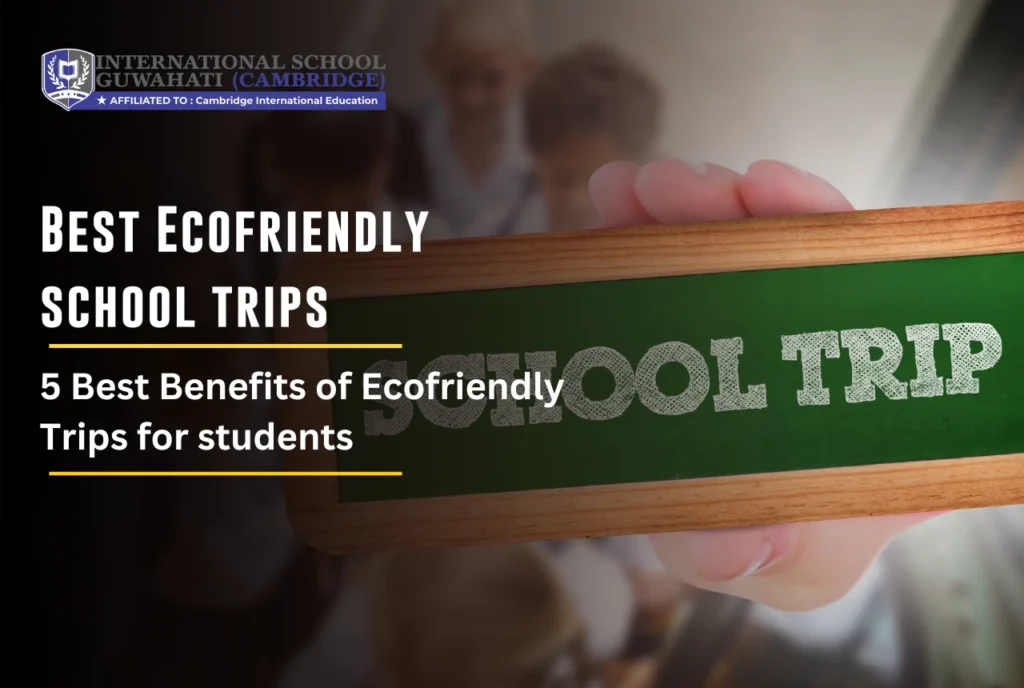![]()
Have you heard about eco-friendly educational outings?
Eco-friendly school outings are becoming indispensable in today’s environmentally conscious world. These excursions, besides providing hands-on learning, develop conscious awareness about and accountability to the environment.
Most importantly the involvement of students in eco-friendly school outings not only enables them to understand the ecological systems but also makes them recognize the importance of resource conservation and produces a lifelong commitment to protecting the planet.
This article outlines five of the best ecofriendly school trips for students that promise an incredible experience while instilling sustainability and learning.
To learn more, you may find it useful to explore studies on the impact of outdoor learning on student engagement or even research on the long-term benefits of environmental education in schools.
Why Choose Eco-Friendly School Trips?
Eco-friendly school trips offer many benefits for students, teachers, and the environment. They are potent weapons of environmental education for children to understand complex ecological ideas and humankind’s effect on the planet.
Here are some of the biggest advantages that come from taking an eco-friendly school trip:
- Environment consciousness: The trips allow students to be part of nature and become conscious This will give them first-hand experiences with the beauty of ecosystems and the importance of preserving them.
- Increases Sustainable Behaviors: Involvement in activities, like tree planting or wildlife conservation, instills practices in students to reduce carbon footprint and create eco-friendly habits.
- Develops Responsibility: Sustainable school excursions develop a sense of stewardship among students, who take responsibility for their community and solve issues related to the environment.
- Reduces Carbon Footprint: Most environmentally friendly school trips are planned in such ways that work on minimizing travel emissions through sustainable practices while the excursion takes place.
- Retention Power: Better learning outcome results are obtained through experiential learning, as focusing on trips to ecotourism improves both academic performance, in addition to better knowledge retention.
The outcomes of this act help raise a responsible generation who appreciates sustainability and the conservational importance of the environment.
The 5 Best Ecofriendly School Trips for Students
Eco-friendly school trips are highly helpful for students, teachers, and the environment. They are a good means through which ecological knowledge can be passed on to understand the more complex ecological ideas and human behavior that impacts this planet. Some of the main advantages are as follows:
1. Organic Farm Visits
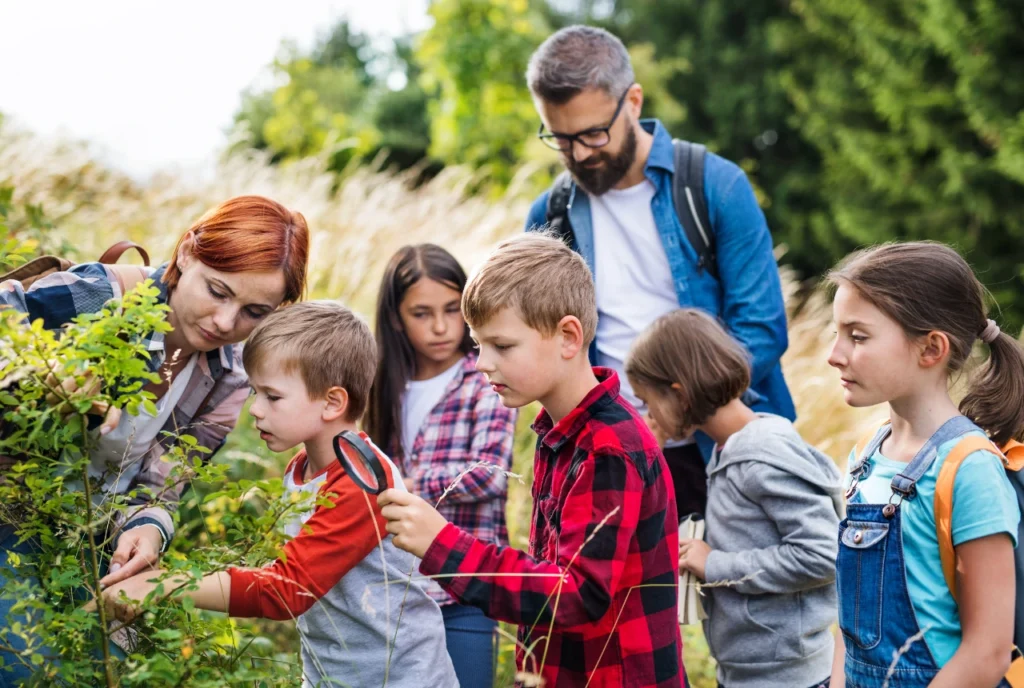
Organic farm visits expose students to sustainable agriculture and the production of food locally. Organic farm visits create awareness of the production of food and the importance of organic farming practices.
Activities: Farm tour, hands-on planting, harvesting, and composting workshop.
Benefits: These visits promote healthy eating habits, create a sense of appreciation for ecosystems, and drive stewardship concerning the environment. An example site is the Common Ground Farm located in New York, which represents the philosophy of organic farming.
2. National Park Conservation Programs
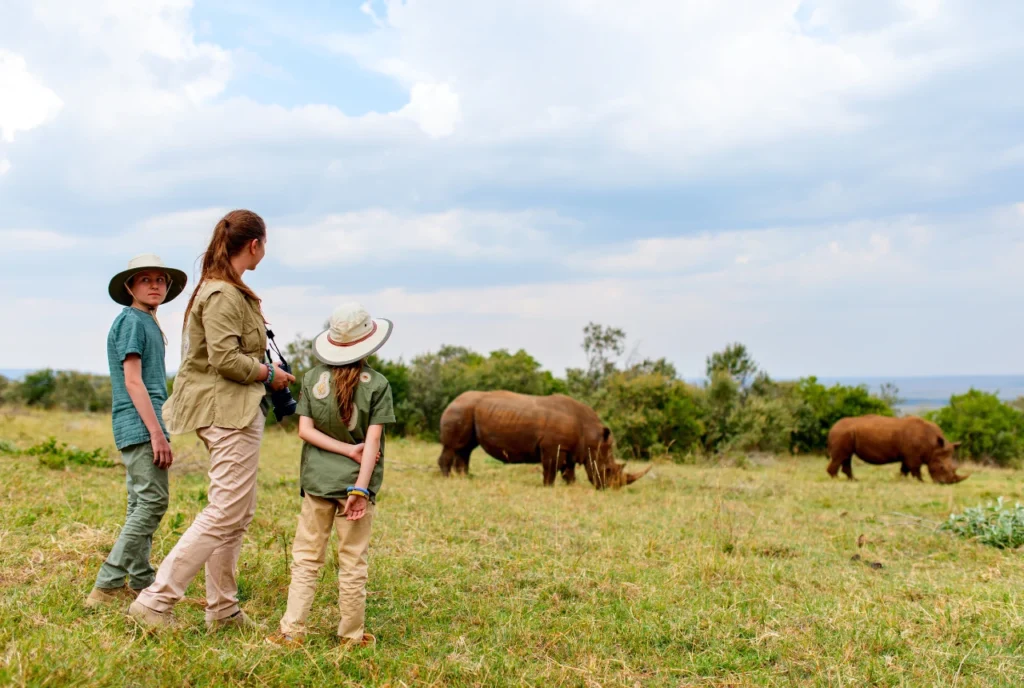
National parks operate as centers for learning with conservation programs, which expose students to varied parks and beautiful natural scenery through biodiversity, which has been categorized under the conservation of natural resources.
There are few activities that would range from wildlife observation, conservation volunteer programs, and nature walks among other regular ones.
Benefits: Students will achieve hands-on experience in environmental preservation while being taught to appreciate ecosystems diversity within national parks. A great example site could be Yellowstone National Park, USA – the students can easily and actively join the conservation activities and be involved in the process of learning about the essence of preserving natural habitats.
3. Eco-Resorts and Sustainable Tourism
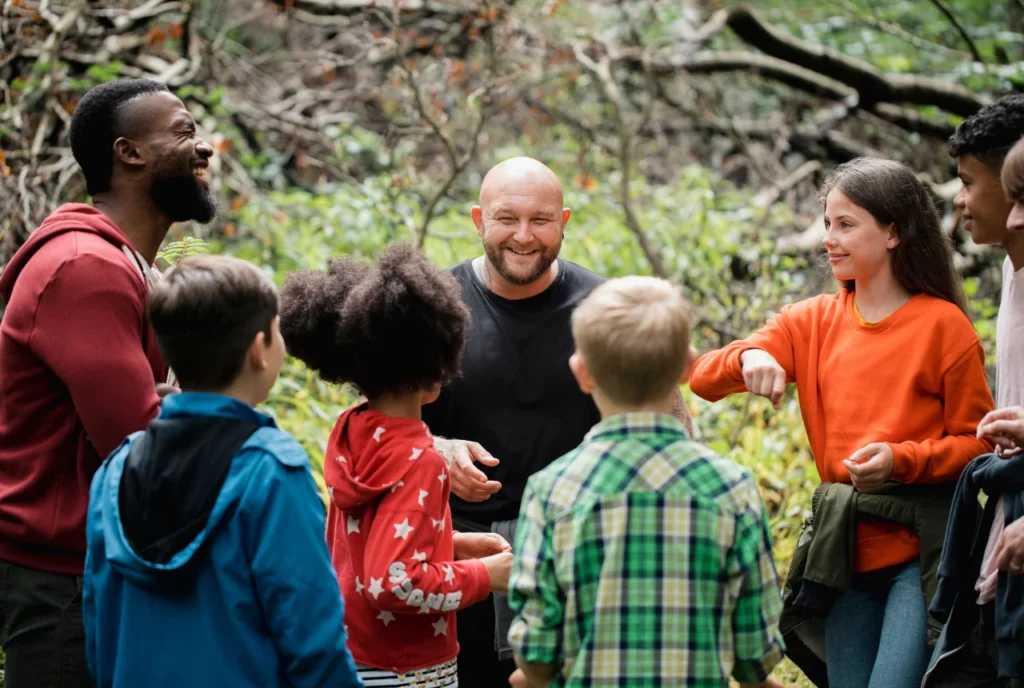
Visiting eco-resorts is an opportunity for students to interact with sustainable tourism practices and learn about eco-friendly lodging.
Activities: Eco-tours, energy-saving workshops, and encouraging the participation of local cleanup activities are also common activities. These experiences will give students much-needed information on sustainable tourism, renewable use of energy, and waste-reduction methods. An excellent example is Lapa Rios in Costa Rica, where a participant can see the outcome of responsible tourism both in environmental conservation and benefits to the community.
4. Wildlife Rehabilitation Centers
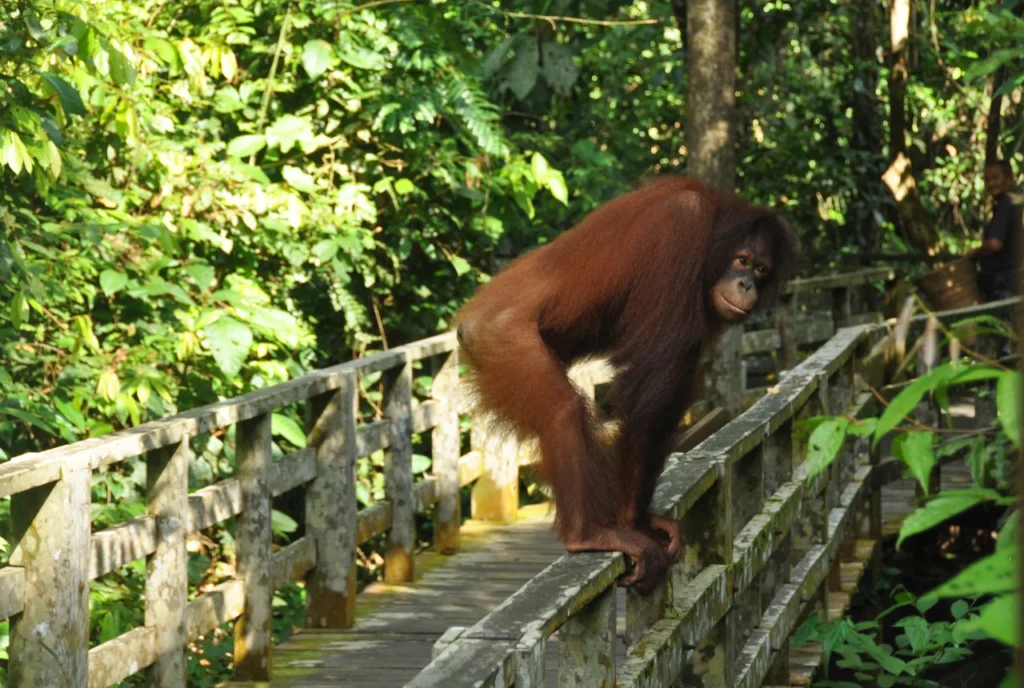
Educational visits to wildlife rehabilitation centers can give students the opportunity to see firsthand different approaches toward the protection of endangered species, followed by rehabilitation to ensure their survival.
Such activities include participating in animal care volunteering, which will involve feeding and taking care of injured or orphaned wildlife. Other related activities include discussions on laws and practices involved in the protection of wildlife and the conservation of certain species.
These experiences contribute to, significantly, improving the level of awareness regarding wildlife conservation issues and provide working experience in taking care of animals, thus enhancing a rapport with nature. An example of this is The Elephant Nature Park in Thailand, which has achieved worldwide acclaim for its commitment to animal welfare and education.
5. Renewable Energy Sites
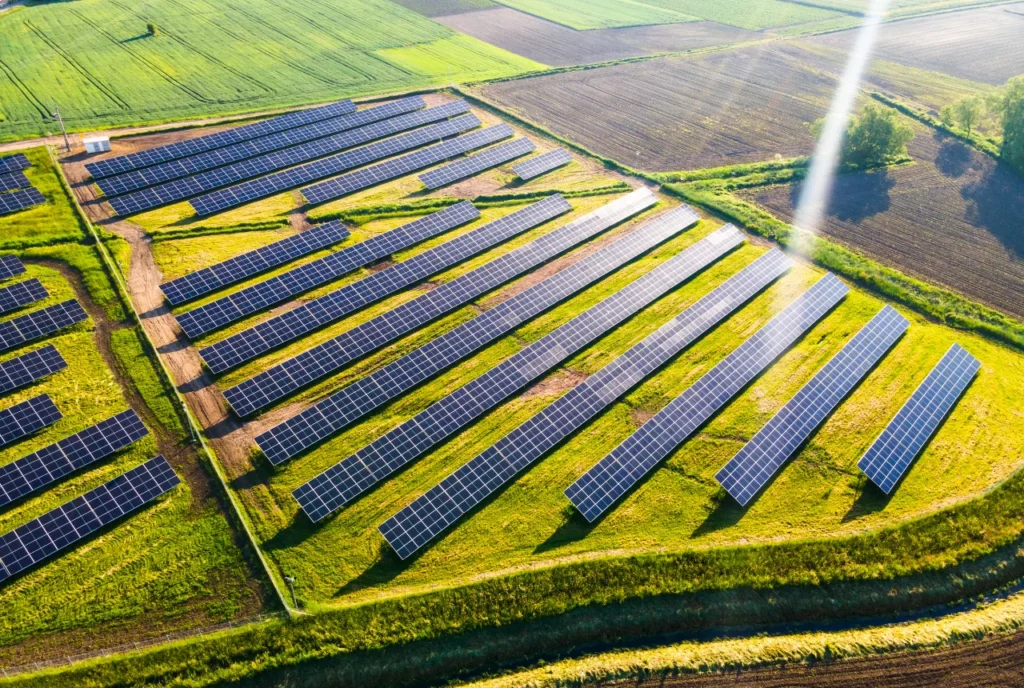
Renewable energy sites such as wind farms, solar parks, or hydropower plants provide the opportunity for education on sustainable energy technologies and their importance in efforts to combat climate change.
Activities often include guided tours of the site, where students will have the opportunity to see renewable energy solutions applied in action, plus interactive workshops that explore the science behind these technologies.
Advantages of such tours include knowledge of sustainable energy practices, education in reducing dependence on fossil fuel, and inspired future career goals in green energy fields. On this list is the prime location of Whitelee Wind Farm in Scotland, which is Europe’s largest onshore wind farm and offers educational programs for visiting groups.
What to Consider When Planning Eco-Friendly School Trips
During the planning of an eco-friendly school trip, several important points must be considered for sustainability, educational value, and the interests of the students.
Transportation Methods: Buses or trains are perfect in place of cars or planes. The lowest in emission is by the trains per passenger miles. So they are very suitable for group travel. So, if that is not necessary, then electric or hybrid vehicles can also be used.
Different Accommodation Choices: Go to places like eco-lodges or accommodations, which have environmentally sustainable practices. Choose the places that are LEED (Leadership in Energy and Environmental Design) or the Energy Star rating accredited. Those hotels usually conserve energy and promote responsible tourism.
Positive Impact on the Local Communities: As much as possible, choose a destination that is into sustainability and has some form of practice to sustain the environment. Try to engage the people there and become a contributory tourist, not destructive, to their economy.
Learning Value: Make sure the trip is related to curriculum goals and provides meaningful learning experiences. Actions could help students learn about environmental concerns and support their independent thoughts on the roles they play concerning the planet.
Student Involvement: Involve your students beforehand and include them in the planning process so they can have a sense of ownership and accountability over the event. Invite them to participate in activities such as clean-ups at the destination or workshops on sustainability.
Budget and Safety Standards: Options chosen must take into account school budgets, yet remain environmentally conscious. Look for grants or funding specifically created for the upkeep of trips that further education travel. Select those companies or people who ensure some positive level of standard safety.
All the above factors can help schools build a good ecotourism trip that will not only better students’ knowledge but also restore the environment and local communities.
How to Maximize the Learning Experience on Eco-Friendly School Trips
To enhance the educational learning on eco-friendly school trips try to integrate pre-trip research, post-trip discussions, as well as hands-on activities. They are some of the elements that can engage students in further understanding environmental issues and can maintain a sustainable commitment.
- Pre-trip research. It allows the students to research the destination, local ecosystems, and environmental challenges before embarking on the trip. This also prepares the students for the experience they are going to experience and prepares them to ask informed questions during the excursion.
- Post-Trip Discussions: Arrange a group discussion in the class following the experience, wherein the students reflect on the experience, giving insight and ideas that apply what they learned in their lives. A discussion does indeed help them impress lessons learned and inspires action.
- Hands-on activities: A trip can include hands-on activities to engage students actively with the environment. Activities such as cleaning the beach, planting trees, or monitoring wildlife appear on that list. These really link them to the cause and give a belief in their capacity to change things in the world.
- Reflection Session: Reflection sessions with the students are to be conducted before, during, and after the trip. Thus, encourage them to reflect on how they individually impact their environment, the problems being faced by the local community, and how positively they can contribute to solutions. Such sessions help stimulate critical thinking and personal growth.
- Curriculum Connection: Teachers can bring the experience into a lesson by connecting it to relevant classes, assigning pre- and post-trip projects, and encouraging students to share their experiences with the class. Relevance is encouraged and the new knowledge learned on the trip can be used by the students.
Conclusion
Eco-friendly school trips are effective ways to promote environmental literacy and environmental responsibility while giving the students concrete experiences with ideas of conservation. When you choose destinations that place importance on sustainability, then students develop hands-on experiences with the real services of conservation and gain respect for nature.
Implement pre-trip research, post-trip discussions, and hands-on activities to trigger responses among students, urging them to take action. These trips could be sure to affect the students of tomorrow. But only through active support from the schools and parents could this happen.


